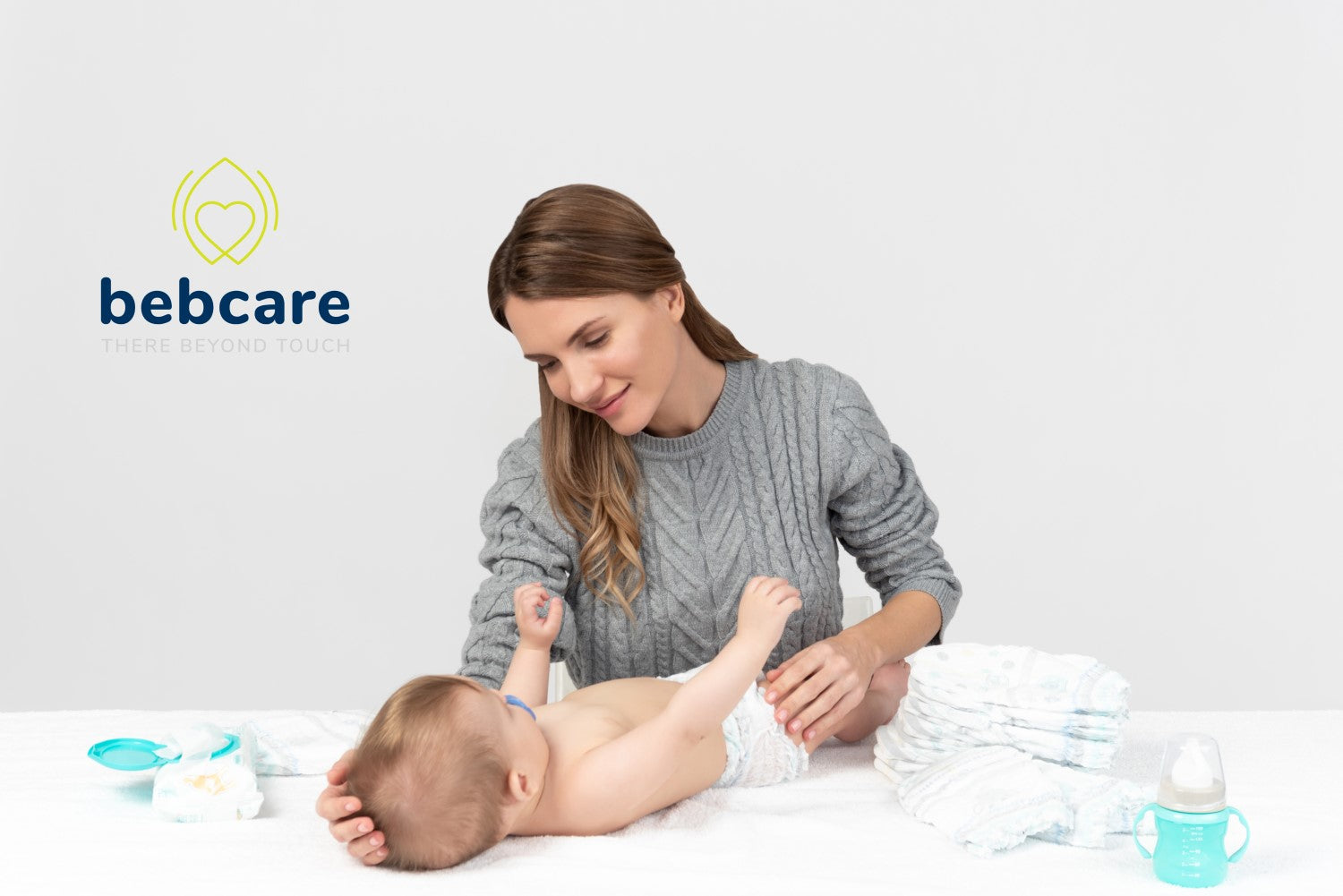







Let's Talk, Baby! Why Constant Communication with Your Baby is Important.
A guest post by Dr. Christine Langer
You play peek-a-boo with your baby, talk to them when they’re lying in the crib, comfort them when they’re distraught, mimic their sounds when they coo- it’s just too hard to not interact with your baby! It’s fun, but also important to their cognitive development.

Parentese
Babies may seem like they can be stimulated by almost anything, but they actually show preference to human voices over other sounds. Parents who are attuned will soon discover the most pleasing pitch, volume, rate and tones of sound to use when interacting with their baby to arouse their interest or calm them down. This type of speech is often referred to as Parentese or Motherese. As most of you are probably all too familiar with already, Parentese is characterized by exaggerated and repetitious speech in a slow and articulated manner. Babies seem to respond best to the female voice, which is historically associated with comfort and food. This explains why most people will raise the pitch of their voices and exaggerate their speech when talking to babies. Studies have found that Parentese speech is positively correlated with concurrent speech and later word production in babies, and “baby talk” will not delay speech development- mix in some regular adult words and tone so your baby can also feel what a normal conversation sounds like. It may seem early, but you're setting the stage for your baby's first word.

The majority of our brain’s physical development happens in the first three years of our lives. Connections, or synapses, that are needed for the baby to think, learn and process information continues to form as the brain grows. Talking to your baby fires up the important synapses in the language region of the baby’s brain, which means that the more words she hears, the stronger those mental connections become. This process can strengthen your baby’s future language skills and their overall ability to learn. Babies who received more interactions with Parentese know more words by age 2 than their peers.
Follow your baby’s lead
Your baby loves to hear your voice, so talk, babble, sing, and coo away during these first few months. Respond enthusiastically to your baby's sounds and smiles. Tell your baby what he or she is looking at or doing and what you are doing. Name familiar objects as you touch them or bring them to your baby.
Make the most of your baby’s “talking” to have a conversation. Converse to them by following their leads- when your baby make a sound, repeat it and wait for him or her to make another. You are teaching your baby valuable lessons about tone, pacing, and turn taking when engaging in conversation.

You are also sending the message that your baby is important enough to listen to. Don't interrupt or look away when your baby's "talking" — show you're interested and that your little one can trust you.
Sometimes babies aren't in the mood to talk or vocalize — even babies need their space and a break from all the stimulation in the world. Babies might turn away, closes their eyes, or becomes fussy or irritable. If this happens, let your little one be or just try cuddling.
There might be times when you've met all of your baby's needs, yet he or she continues to cry. Don't despair — your baby may be overly stimulated, have gas, or may have too much energy and need a good cry.
Baby Talk Basics
As your child develops and matures, so should the way you talk to them.

If You're Concerned
Every baby develops at their own pace, just as they grow physically at different rates. Talk to your doctor if your baby seems to cry for unusually long periods or if the cries sound odd to you so you can find out if there might be a medical reason for your baby’s distress. Chances are there is nothing wrong, and knowing this can help reassure you and help you stay calm when your baby is upset.
Although it's common for babies to have a fussy period, when an infant who is otherwise healthy cries for more than 3 hours per day, more than 3 days per week for at least 3 weeks, it is a condition known as colic. This can be upsetting, but the good news is that it's short-lived — most babies outgrow it at around 3 or 4 months of age. The best way is to find out what best comforts your baby during these stressful times.
So, what are you waiting for? Keep these tips in mind, pick up your little one and get talking. Use Bebcare baby monitor as a tool to help you communicate with your baby!
- Dr. Christine Langer
Leave a comment